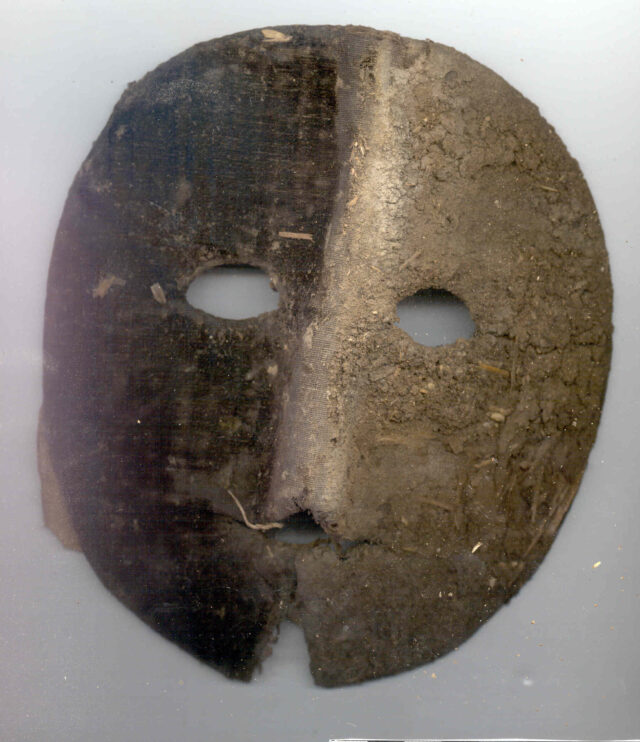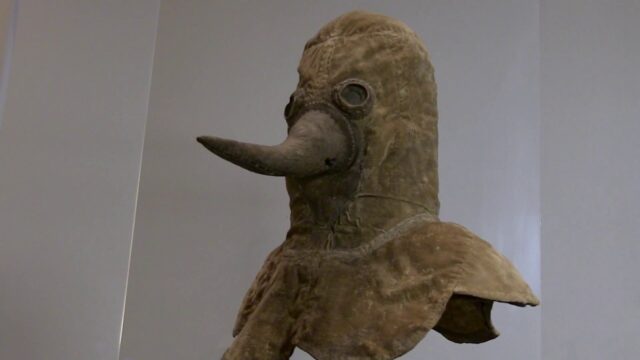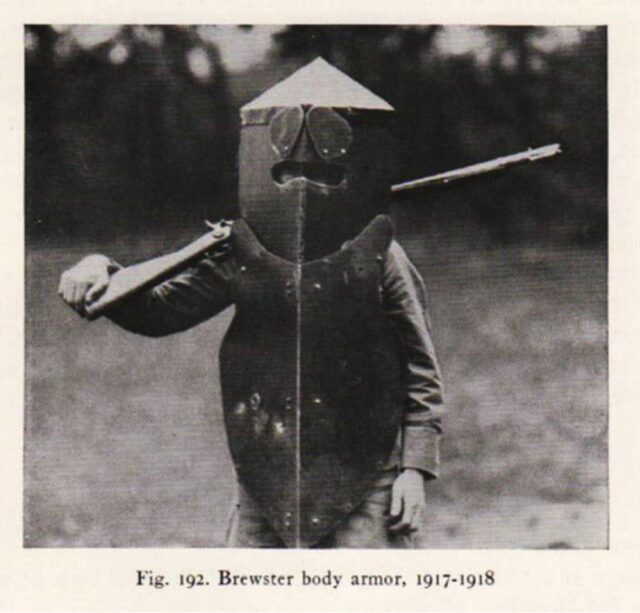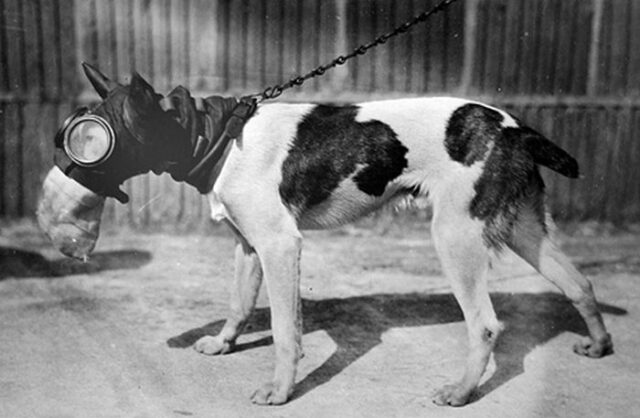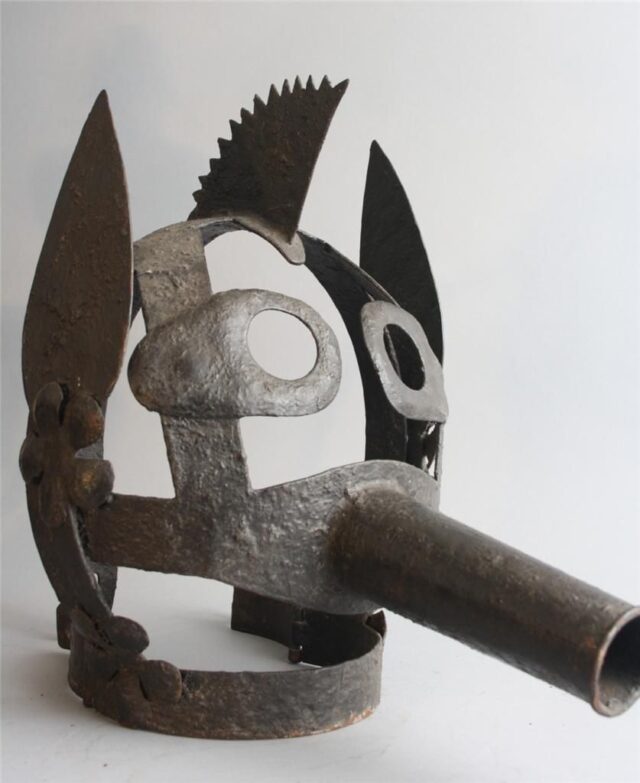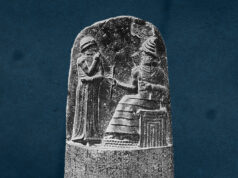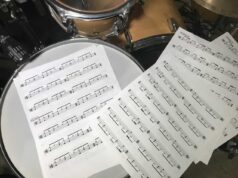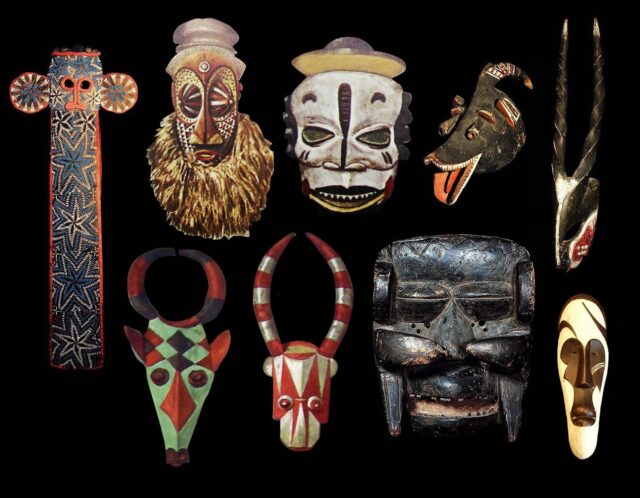
There’s something inherently unnerving about hiding one’s face, but some masks and helmets go the extra mile—often times unintentionally. Even when their purpose isn’t malicious these eleven examples are amongst the creepiest masks and helmets in history.
11Capirote
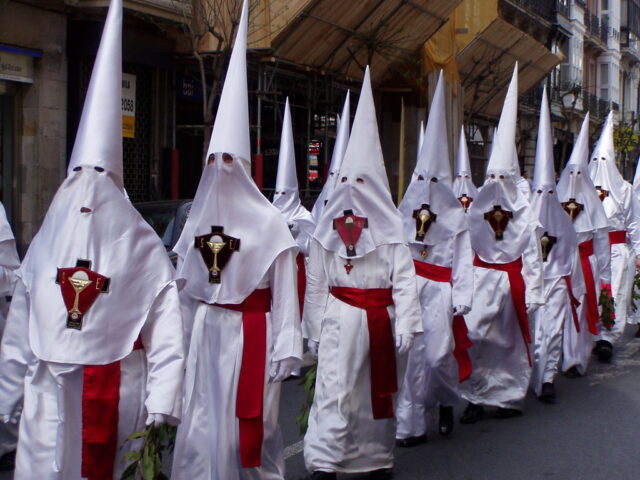
Though now associated with Spanish Easter observances, particularly Holy Week, their origin lies in medieval society. Clowns wore them to depict foolishness, and criminals were forced to wear them for the same purpose. For Holy, Week sinners wear them with the mask as a form of penance.
10Kifwebe
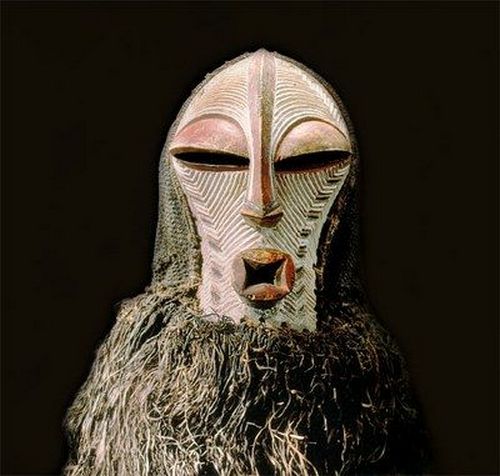
These masks were once worn by authority figures in the Congo. Different designs served different functions and their shapes, colors, symbolism, and names reflected this, referencing diseases, animals, mysticism, and other phenomena as a way to wield power over these things.
9Calico Hood
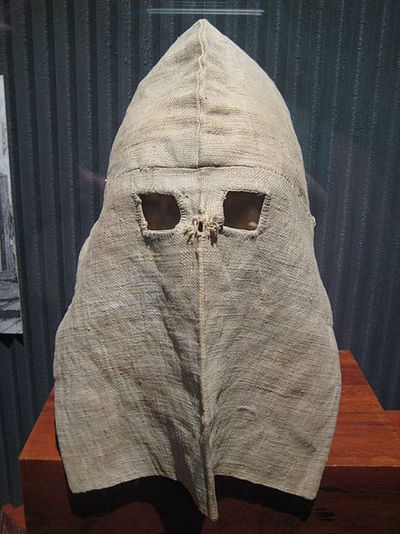
Also known as the silence hood, this was used to punish prisoners at the Melbourne Gaol prison from 1845 to 1929. Reserved only for those held in solitary confinement, the establishment’s rules didn’t allow for prisoners to speak to each other. This mask forced such silence.
8Scold’s Bridle
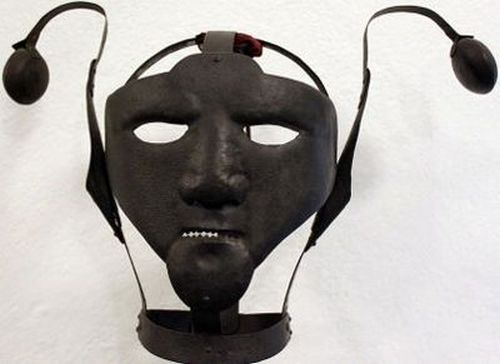
A form of punishment originating in the 1500s, this device was used on those with a “troublesome tongue,” usually women (though occasionally used on slaves in 18th century Virginia as well). A studded metal piece sticks into the mouth while the rest locks together, making speech incredibly difficult.
7Hall and Reed’s Escape Apparatus
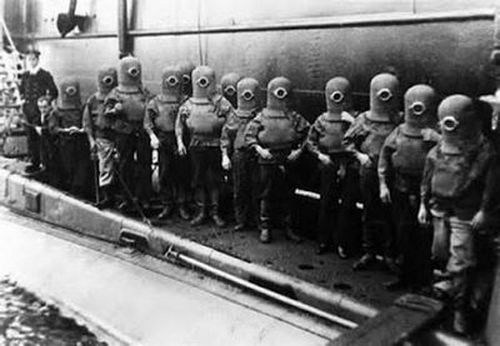
You probably saw this in 2015 attached to a claim that it portrayed child prisoners of the Nazis wearing gas-testing suits. That’s obviously not true, and the nature of these suits and helmets are totally harmless—to aid in escaping submarines. But that doesn’t make it any less strange looking.
6PH Helmet
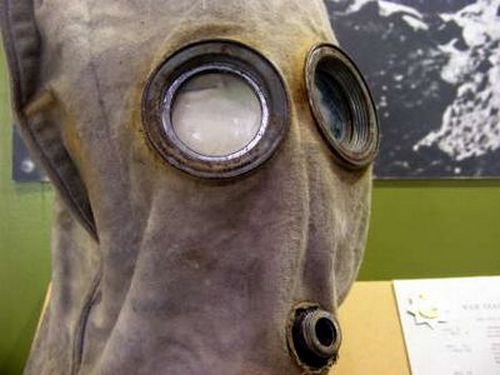
A World War I gas mask used by the British, the mask features two eyepieces (improved from the previous mask’s single visor) and had a layer of cloth dipped in chemicals to protect against chlorine and phosgene and hydrocyanic acid.
This was a 16th-century mask designed for women. Worn during travel, it was designed to protect from sun exposure (pale skin was seen as fashionable amongst the wealthy women in society). Covered in black velvet, the mask was sometimes held in place by chomping down on a mouthpiece, effectively silencing the wearer (supposedly to make them appear more “mysterious” in their silence).
Though plague doctors existed since at least the 6th century, the mask and associated costume only came about in the 17th century. The beak is roughly a foot-and-a-half long and is filled with fragrances. At the time it was believed that bad smells transferred diseases.
The complete package—the massive helmet and all-encompassing body armor—were designed by the United States Army during World War I. While effective at withstanding gunfire, the original design was difficult to maneuver and weighed forty pounds. The final version was cut down to a slim and trim eleven pounds.
An experimental gas mask for canines. Though this particular design was more of an experiment/proof of concept, dog gas masks were introduced (by the US army, anyway) during World War I before becoming more common amongst more countries in World War II.
This was a torture device, though the mask itself didn’t inflict any physical pain. The victim was forced to wear it as humiliation while chained to one spot to be tortured by those nearby. Sometimes a ball was placed in the mouth to prevent the wearer from screaming (apparently a common trait amongst creepy headgear).

